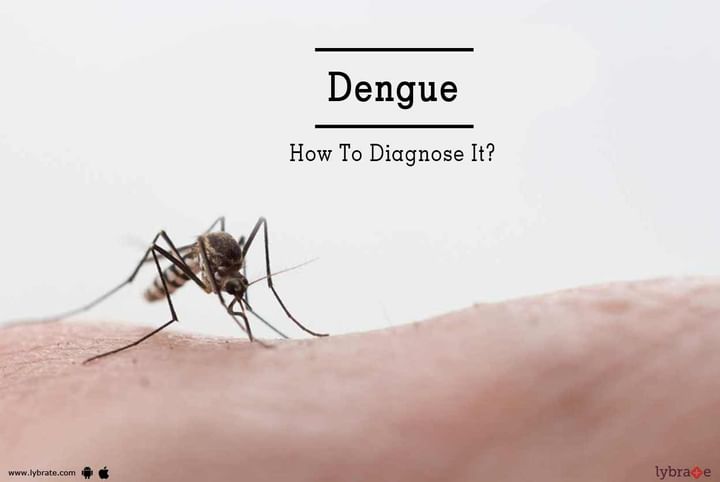Dengue - How To Diagnose It?
If you are in an area which has a lot of mosquitoes, any fever that is not subsiding in a couple of days is a cause for concern as it can be due to dengue. It is one of the dreadful diseases doing the rounds in recent years and when someone complains of fever and joint pain, the first question we ask if they got checked for dengue. This is caused by a virus that is carried by an infected mosquito.
The blood is made up of 3 types of cells mainly that are in a liquid medium called the plasma. The red blood cells are the oxygen-carrying cells and the white blood cells fight infection and provide immunity. The third type are the platelets, they are smaller than the other two and help in blood clotting. With dengue fever, both the white blood cell count and the platelet count are decreased. Normal platelet count in the body ranges from 1.5 to 4 lacs and in patients with dengue; this can go down to as low as 20,000 to 40,000. This is because of the following:
- Dengue suppresses bone marrow, which is the platelet-producing area, leading to decreased platelet count.
- Blood cells affected by dengue virus damage platelets, leading to their drastic fall in numbers
- Antibodies produced in dengue also lead to massive destruction of platelets
Patient presents with nonspecific symptoms including a high fever that does not subside, vomiting, pain behind the eyes, headache, nausea, and severe muscular and joint pain. The eye pain and joint pain lead to the suspicion of dengue fever. Symptoms develop after 4 to 7 days after the bite. The fever lasts for about 5 to 7 days and is followed by a prolonged period of fatigue, joint pains, body pain, and rashes.
For the sake of confirming the diagnosis, the doctor will run some lab tests. These include testing for antibodies IgG and IgM, PCR testing to check the virus and a complete blood count. This will reveal the decrease in the white blood cells and the platelets to a significant degree. Whether or not a person requires platelet transfusion will be decided by the doctor based on the person’s age, immunity levels and severity of the disease.
There isn't a particular level below which a person would require platelet transfusion. In aged people and with people who have other chronic diseases, platelet transfusion may be required even if the blood count is about 50,000. The doctor will decide this based on the patient’s health. The right thing to do is to go for medical consultation and discuss your situation with the doctor and identify what needs to be done for your condition specifically.



+1.svg)
